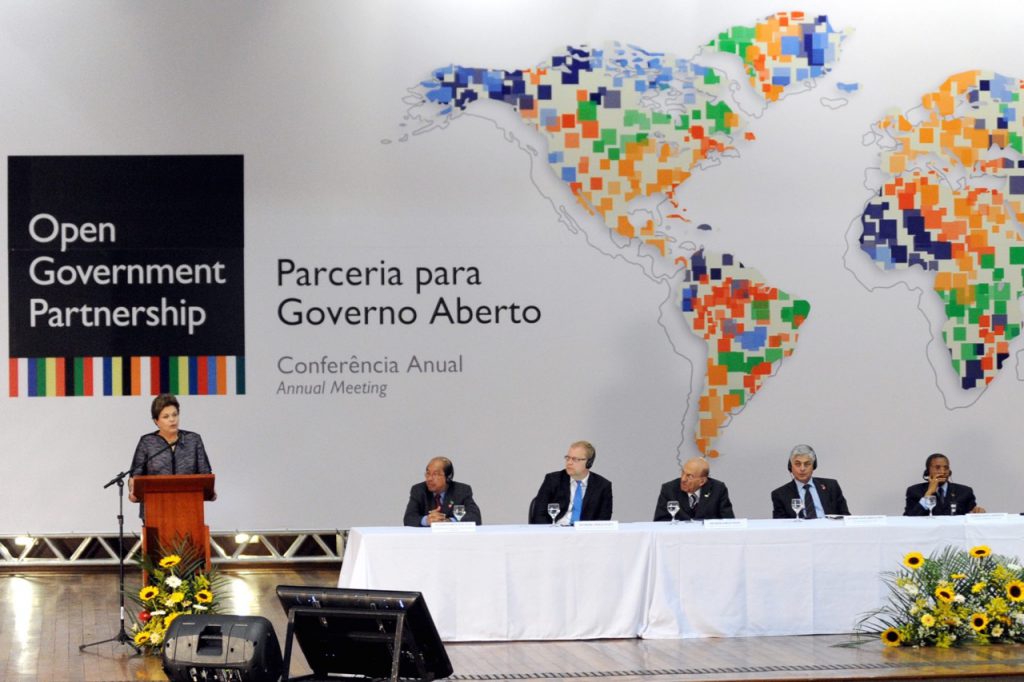Like many of you, the IFEX network is committed to using every tool at its disposal to make it safer to be a journalist, and to ensure that those who commit crimes against free expression, anywhere in the world, are held to account.
This work needs our very best advocacy efforts. There are several international spaces and mechanisms that civil society can access, both through the UN and regional bodies. But they can feel inaccessible… and sometimes confusing. IFEX offers these explainers to help demystify the processes and make it easier to strategically engage with them.

How the IACHR can bolster your advocacy work in the Americas
The Inter-American Commission on Human Rights (IACHR), which marks its 60th year in 2019, is a crucial player in efforts to promote and protect human rights in the Americas region. Find out how you can use it to bolster your free expression advocacy. Check out the explainer

Open Government Partnership (OGP): Linking openness to freedom of expression
The Open Government Partnership brings states together to make their governments more open, accountable, and responsive to citizens. Find out how civil society groups can be a part of it! Check out the explainer

Sustainable Development Goals (SDGs): What role for freedom of expression?
Your State has committed to “ensure public access to information and protect fundamental freedoms”. This is what the Sustainable Development Goal 16.10 affirms. Is your government holding up to its commitment? You can help to monitor its progress – and contribute to it! Check out the explainer

The UPR: What it is, and how civil society can use it – and make it stronger
The Universal Periodic Review puts each UN member state’s human rights record under the microscope every five years, but requires the active engagement of civil society to make the most of it. Learn how you can participate and use its outcomes on the ground.
Check out the explainer

Keeping track of civil and political rights in your country: The UN Human Rights Committee
Is your government living up to its obligations to protect civil and political rights? This 5-minute guide will get you started on how you can incorporate the Human Rights Committee’s 18 independent experts into your advocacy work in this area.
Check out the explainer

Women’s (in)equality and the media: Engaging with the UN Commission on the Status of Women
Read this 5-minute IFEX guide to learn about ways to engage with the UN Commission on the Status of Women to promote gender equality in your freedom of expression advocacy work.
Check out the explainer

From special rapporteurs to expert working groups: the UN’s special procedures
This 5-minute IFEX guide is an introduction to a specific group of specialists – UN special rapporteurs and expert working groups – and how you can work with them to promote freedom of expression.
Check out the explainer

The “Cre”: A UNESCO human rights tool you might not know about
UNESCO’s Committee on Conventions and Recommendations offers a mechanism that any individual or group can use to try to get violations of rights, including the right to freedom of expression, addressed by States – but it’s relatively unknown.
Check out the explainer

Resolutions on journalists’ safety: How does the UN monitor their implementation?
Learn how the UN checks whether States are putting their international commitments on journalists’ safety and the problem of impunity into action, and how civil society can contribute.
Check out the explainer

How can UN resolutions make it safer to be a journalist?
Since 2012, several landmark resolutions have been approved by UN bodies on the issue of the safety of journalists. This guide explains what they are, and how to use them to keep governments accountable. Check out the explainer

What is the UN Plan of Action on the Safety of Journalists and the Issue of Impunity?
The UN Plan of Action on journalists’ safety provides an opportunity to join a multi-stakeholder effort to fight impunity for crimes against journalists.
Check out the explainer

What you need to know about UNESCO’s report on journalists’ safety and impunity
The Director General’s report on journalists killed in countries around the world since 2006 is a powerful tool – one with the potential to do even more.
Check out the explainer